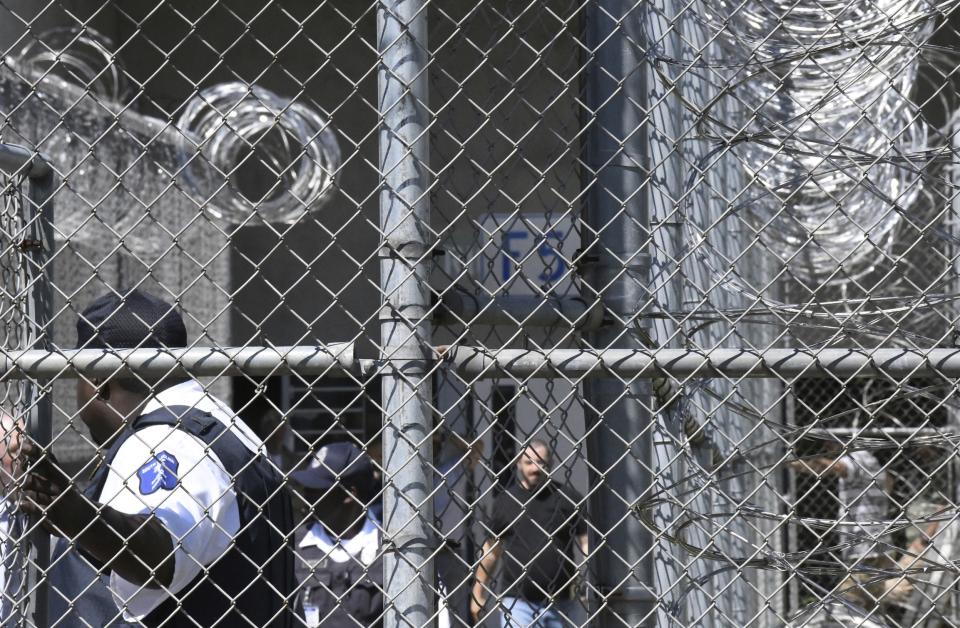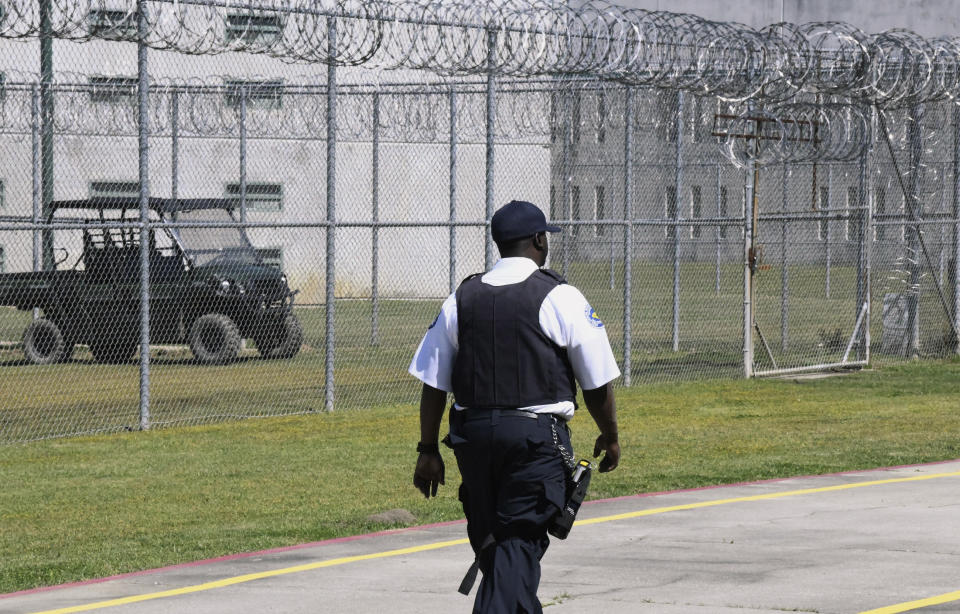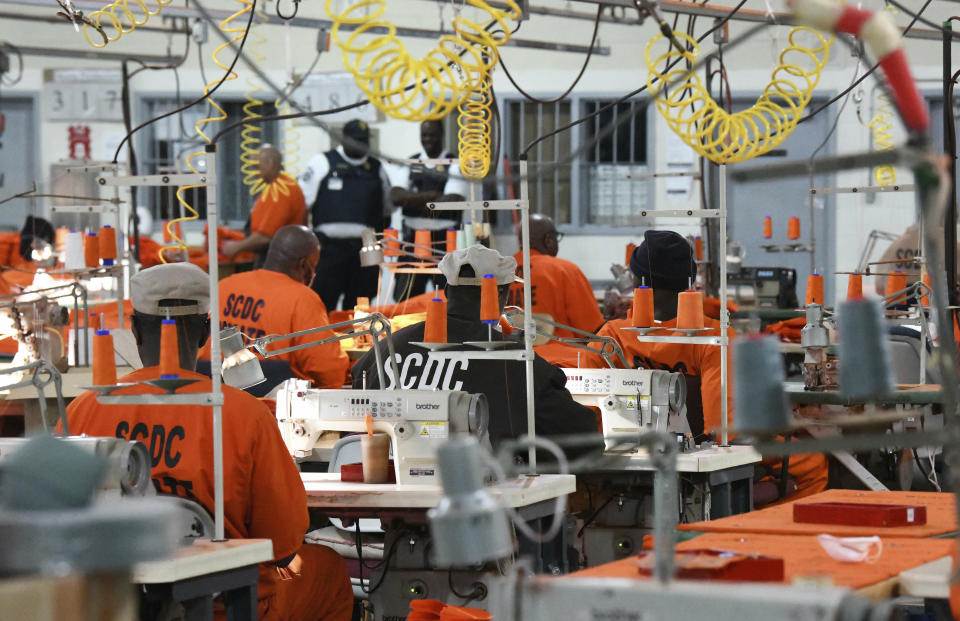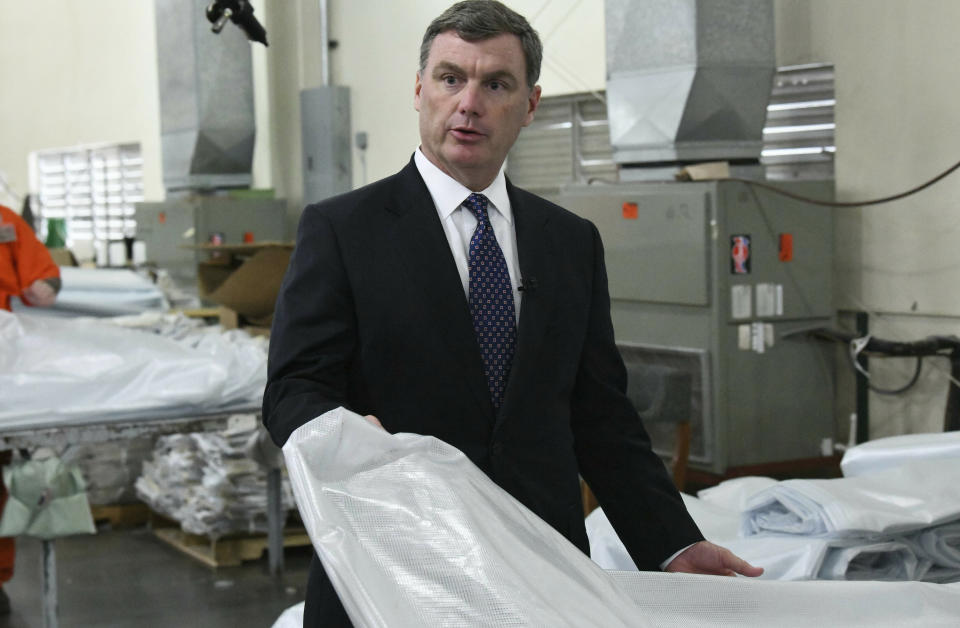A year after riot, SC prison officials claim improvements
BISHOPVILLE, S.C. (AP) — A year after seven South Carolina inmates died in an insurrection, myriad security measures are in place to crack down on the illegal cellphone use that facilitated the worst U.S. prison riot in 25 years, corrections officials said Wednesday during a tour of the institution.
In April 2018, inmates gained control of parts of the Lee Correctional Institution in Bishopville in what officials described as a battle over contraband and territory. Most of the slain were stabbed or slashed; the remainder appeared to have been beaten. One inmate described bodies "literally stacked on top of each other, like some macabre woodpile."
During Wednesday's tour, there was no sign of the bloodstains that had covered dorm walls and pathways shortly after the deadly violence. No one has been charged in the killings. Corrections Director Bryan Stirling said an investigation by state police and his own agency had been completed and would be sent to local prosecutors and the state attorney general.
All of Lee's 1,200 inmates were on lockdown for weeks after the riot. These days, according to Warden Ken Nelson, fewer inmates are allowed out at a time for activities, but only two units are still considered on some form of lockdown.
Stirling reiterated Wednesday that the uprising was facilitated by a constant scourge of cellphones, smuggled into the state's institutions each year by the thousands and used by prisoners to communicate with the outside world and each other. Over the past year, Stirling said, he has enhanced programming to keep inmates productive and busy, and implemented security measures, including perimeter netting, monitoring by drone and scanners to detect cellphones brought in either by visitors or inmates.
"Everything we do, they try to find a way around it," Stirling said. "So we have to be vigilant."
After the riot, an employee familiar with the operations of the Corrections Department told The Associated Press that delivery trucks — which are supposed to be inspected when entering prison grounds — often ferried cellphones and other contraband. On Wednesday, Stirling confirmed the information and said a number of corrections employees had been arrested on contraband-related charges.
So far, Stirling said, scanners are helping to reduce the number of phones that make it inside. His officers are finding fewer of them in raids, and he said a lawyer with inmate clients told him the price for a contraband phone has skyrocketed from around $100 to as much as $1,500, indicating they are scarcer.
There are other changes, including a $1 million electronic cell door locking system to replace aging air locks inside the primary dorm where the riot took place. For several months leading up to the insurrection, the AP communicated with a Lee prisoner who used a contraband cellphone to offer insight into life behind bars. Describing frequent gang fights with inmates using homemade weapons, he said prisoners roamed freely, had easy access to cellphones and drugs, and were often left to police themselves.
"ALL of the doors to the cells are broken," wrote the inmate, who spoke to AP on the condition of anonymity because his cellphone was illegal and he feared retribution from other prisoners. "At any time, I can let myself out of my cell, to do whatever it is that I would want to do."
The inmate said he and other prisoners roamed around freely at the prison in Bishopville, about 40 miles (65 kilometers) east of Columbia. Hours after the violence started, no corrections officers or medical personnel attended to the dead or dying, he said.
State Rep. Justin Bamberg, who represents the estates of two of the inmates killed, said piecemeal improvements are better than nothing but only a significant one-time effort like a bond bill could raise the kind of cash needed to make substantive changes at all of the state's prisons.
"This is exactly what happens when state government ignores a core aspect for so long," Bamberg said. "It's decades of neglect, financially, that put us exactly where we're at now."
___
Meg Kinnard can be reached at http://twitter.com/MegKinnardAP





